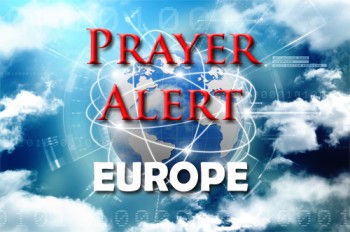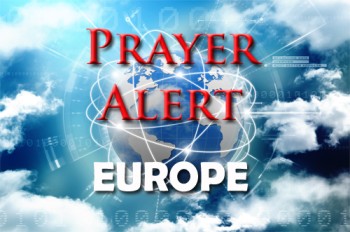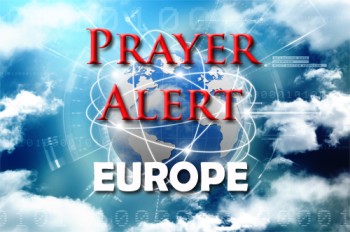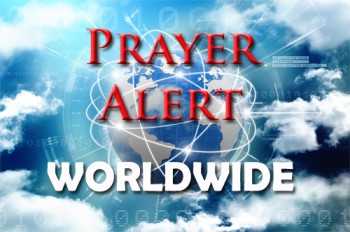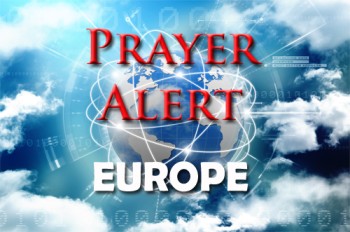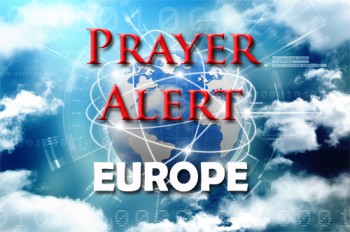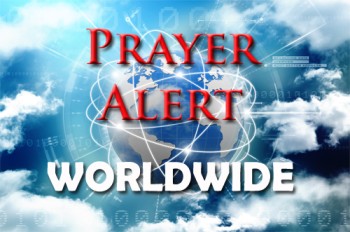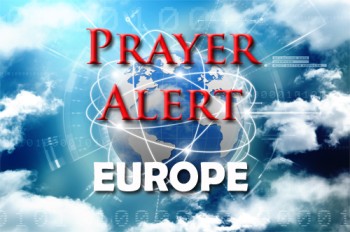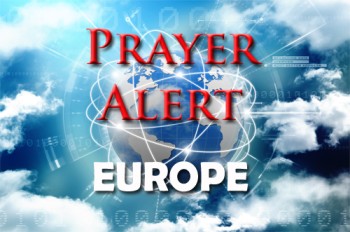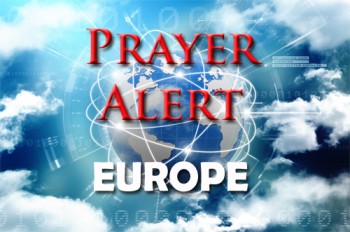Displaying items by tag: Europe
Bosnia: ghost of nationalism returns
Bosnia's political class has failed to short-circuit its dysfunctional governance. Serb strongman Milorad Dodik is raising ghosts of the past. UK ambassador Matt Field’s recent blog condemned deep-seated corruption, ‘consequence-free’ politics and the way powerful individuals could steal public money, block reform, praise war criminals, manipulate elections, and deny justice. Relations between Bosnia and Serbia turned critical last July when the outgoing high representative, an Austrian with roots in former Yugoslavia, banned the denial of genocide. A foreigner passing laws outraged the Bosnian Serb leader. He ramped up separatist rhetoric and stopped cooperating with the national institutions of which he is part. Christian Schmidt, the high representative, said Bosnia is gripped by the ‘greatest existential crisis of the post-war period’, and Dodik’s threat to turn his armed police into a revived Bosnian Serb army risked a return to war.
France: new Omicron sub-variant
Studies are underway to find the precise characteristics of the latest Covid-19 variant, BA2. Accounting for over half of sequenced Omicron cases in 57 countries, it appears more transmissible than the original strain and more able to infect the vaccinated. BA2, nicknamed ‘Omicron's little brother’, was mentioned for the first time during a press conference on 20 January and is being scrutinised by scientists. It appears to have a growth advantage compared to the version of Omicron that has swept the globe. Analysis suggests it could be substantial, although there is a risk of over-estimating growth advantage in the early stages. What we know is that it is a growing proportion of cases. There are no precise data yet on its resistance to vaccines or the severity of the cases.
EU considering nuclear and gas as sustainable
Nuclear and natural gas energy plants could be counted as ‘green energy’ under new controversial EU plans. The European Commission has decided that both types of energy can classify as ‘sustainable investment’ if they meet certain targets. But the move has divided the EU and been fiercely opposed by some members. For instance Austria's chancellor said, ‘Nuclear power is neither green nor sustainable’. Spain also strongly objects, but objections are balanced by support from nuclear-using nations such as France. Classifying natural gas as ‘sustainable’ also has supporters in countries still relying on coal for energy (such as Poland) who would benefit from incentives to move to a relatively cleaner supply. Green parties are fiercely campaigning against the plan. But the European Commissioner said, ‘We need to use all the tools at our disposal’ to reach the climate-neutral target’.
USA: troops deployed to NATO allies
3,000 additional American troops will aid in defending NATO allies in Eastern Europe. A recent satellite image shows Russia has an entire new housing area, established in the past ten days, next to the existing military vehicles in Russia-occupied Crimea. Russia now has 130,000 troops encircling the Ukrainian border, increasing the threat to the region’s stability. The USA said its moves are designed to respond to the current security environment. Moreover, its troops are not going to fight in Ukr; they are there to ensure the robust defence of NATO allies. A thousand US soldiers will reposition from Germany to Romania in the coming days, adding to the 900 currently there. 2,000 additional troops are being moved from the USA to Europe. The 82nd Airborne Division is deploying an infantry brigade combat team and key enablers to Poland. 8,500 US troops remain ready to move if called.
Germany: navy chief resigns
The head of the German navy, Kay-Achim Schönbach, made controversial comments while speaking at a think-tank. On a video later published on social media, he said Putin would not invade Ukraine and needed to be treated as an equal by the West. Also the Crimean peninsula, which Russia annexed in 2014, ‘is gone and will never come back’. Ukraine described Mr Schönbach's comments as ‘categorically unacceptable’. He resigned from his role to ‘avert further damage’. Putin wants the West to stop Ukraine joining NATO, and NATO to abandon military exercises and stop sending weapons to eastern Europe, saying these are a direct threat to Russia's security. Several NATO members are sending military equipment or deploying forces to Ukraine. Germany refuses to send weapons, and Ukraine’s foreign minister said this stance encourages Putin to attack.
Ukraine: spiritual climate
Opportunities for Christians to engage with unchurched people abound in Ukraine. More than a million people from 30+ unreached people groups call Ukraine home, and some parts of the country remain less than 1% evangelical. Ukraine grows more multicultural every day, as students and immigrants arrive looking for education and opportunity. The country is a fascinating mix of ancient and modern, urban and rural, scientific and intuitive. Lately, long-held passions for political freedom and stability characterise many modern Ukrainians. The evangelical church is developing a vision for reaching unfamiliar communities. SEND Ukraine is the answer to a decade-long vision to send missionaries to work in the harvest field. Believers who have been reached and discipled are now partnering with SEND Ukraine and local churches to share the gospel with the hundreds of unreached people groups which live in diaspora communities within the country.
USA / Russia / Ukraine: tensions and threats
Joe Biden said there would be ‘enormous consequences’ globally if Russia invaded Ukraine and threatened personal sanctions on Putin if he does. His comments came as other Western leaders warned Russia would pay a heavy price for an invasion. The UK said it had ruled nothing out, including sanctions on people, banks and businesses. It wants all its allies to do the same, as collective action would deter Russia. Biden also said Europe must match America’s sweeping sanctions. However, Europe imports 45% of its gas from Russia, and Putin has used gas for geopolitical leverage before. Also, Ukraine is not a NATO member, so NATO has no obligation to defend it. Putin objects to Ukraine joining NATO as he wants to have more power there. Invasion is hard to imagine, but so is the prospect of Putin backing off without major concessions from NATO. Recently Russian, Ukrainian, German and French diplomats gathered for talks.
Europe: UK sending weapons to help defend Ukraine
Conflict between Russian-backed separatists in eastern Ukraine and the Ukrainian military has continued since 2014, with a shaky ceasefire in place. Western and Ukrainian intelligence suggest an invasion or incursion could happen sometime in early 2022. In December Russia amassed 100,000 troops on the border - so Ukrainian army reservists took part in exercises. On 18 January defence secretary Ben Wallace told MPs the UK is supplying Ukraine with short-range anti-tank missiles for self-defence, with a small team of British troops to provide training. He said there was ‘legitimate and real cause for concern’ that the Russian troops could be there for an invasion. Dozens of British troops have been in Ukraine since 2015 to train the armed forces, and the UK has also committed to help rebuild Ukraine's navy following Russia's 2014 invasion of Crimea. Now the UK will provide extra help with security in the light of Russia's ‘increasingly threatening behaviour’.
Finland: biblical beliefs challenged
How should we respond to a world that is increasingly estranged from Christian beliefs? This is a question that Finnish MP Päivi Räsänen and Bishop Juhana Pohjola are confronted with. Last year, Ms Räsänen was accused of “hate speech” for publicly voicing her deeply-held beliefs on marriage and human sexuality. The former minister of the interior, mother of five, and grandmother of seven now faces a daunting trial on 24 January in Helsinki. Rev. Dr Pohjola, who was consecrated as a Lutheran bishop in August 2021, assumes his new role at a very challenging time. He faces criminal prosecution with Ms Räsänen for publishing the pamphlet she wrote on human sexuality for his church congregation. Pray for a just outcome of their trial, that no one would be intimidated into silence, but that people would be encouraged to share their beliefs with confidence.
Ukraine: discussions to defuse tensions
Officials from Russia and the United States have been holding security talks in Geneva, in a week of diplomatic activity to defuse tensions over Ukraine. Russian deputy foreign minister Sergei Ryabkov and his delegation have begun face-to-face discussions with Wendy Sherman, the US deputy secretary of state, and her team. Ms Sherman is one of the world's most powerful diplomats, nicknamed the Silver Fox because of her snowy white mane and canny deal-making style. Pray that their meetings will kickstart dialogue between Moscow and Washington, whose relations are at a low point over Russia’s military buildup near Ukraine. The negotiations have been particularly gruelling, say analysts, and Ms Sherman will need all the diplomatic tricks she can muster to avoid a major war in Europe. Sergei Ryabkov brings a list of demands the US officials must agree to, including not expanding NATO forces eastward or allowing Ukraine to join NATO. See also the next article and
